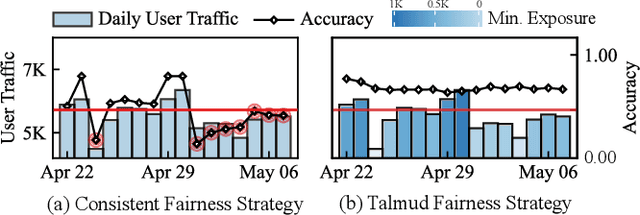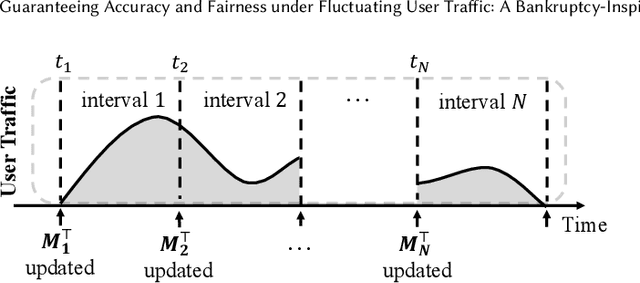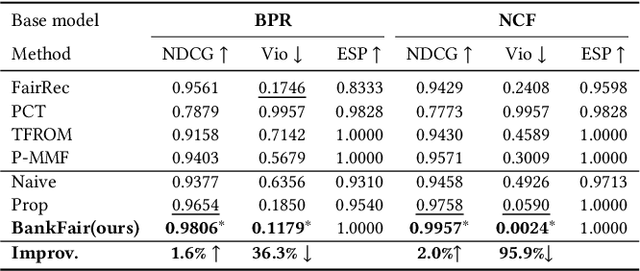Xuyang Xie
Regret-aware Re-ranking for Guaranteeing Two-sided Fairness and Accuracy in Recommender Systems
Apr 20, 2025



Abstract:In multi-stakeholder recommender systems (RS), users and providers operate as two crucial and interdependent roles, whose interests must be well-balanced. Prior research, including our work BankFair, has demonstrated the importance of guaranteeing both provider fairness and user accuracy to meet their interests. However, when they balance the two objectives, another critical factor emerges in RS: individual fairness, which manifests as a significant disparity in individual recommendation accuracy, with some users receiving high accuracy while others are left with notably low accuracy. This oversight severely harms the interests of users and exacerbates social polarization. How to guarantee individual fairness while ensuring user accuracy and provider fairness remains an unsolved problem. To bridge this gap, in this paper, we propose our method BankFair+. Specifically, BankFair+ extends BankFair with two steps: (1) introducing a non-linear function from regret theory to ensure individual fairness while enhancing user accuracy; (2) formulating the re-ranking process as a regret-aware fuzzy programming problem to meet the interests of both individual user and provider, therefore balancing the trade-off between individual fairness and provider fairness. Experiments on two real-world recommendation datasets demonstrate that BankFair+ outperforms all baselines regarding individual fairness, user accuracy, and provider fairness.
BankFair: Balancing Accuracy and Fairness under Varying User Traffic in Recommender System
May 25, 2024



Abstract:Driven by sustainability and economic considerations, two-sided recommendation platforms are required to satisfy the needs of both users and providers. Previous studies often indicate that the two sides' needs differ in urgency: providers have relatively long-term exposure requirements, while users desire short-term, accurate services. However, our empirical study reveals that existing methods for balancing fairness and accuracy often fail to ensure both long-term fairness and short-term accuracy under fluctuating user traffic in real applications. Notably, when user traffic is low, user experience tends to decline significantly. Then, we conducted a theoretical analysis confirming that user traffic is a crucial factor in such a trade-off problem. Ensuring accuracy and fairness under variable user traffic remains a challenge. Inspired by the bankruptcy problem in economics, we propose a novel fairness-aware re-ranking approach called BankFair. BankFair intuitively uses the Talmud rule to leverage periods of high user traffic to compensate for periods of low traffic, ensuring consistent user service while maintaining long-term fairness. BankFair is composed of two modules: (1) utilizing the Talmud rule to determine the necessary degree of fairness across varying user traffic periods, and (2) implementing an online re-ranking algorithm based on the fairness degree established by the Talmud rule. Experiments on one publicly available and one real industrial dataset demonstrate that BankFair outperforms all baselines in terms of both accuracy and provider fairness.
 Add to Chrome
Add to Chrome Add to Firefox
Add to Firefox Add to Edge
Add to Edge